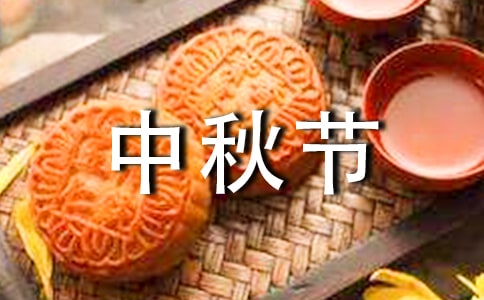- 相关推荐
中国人中秋节的习俗
The Mid-Autumn Festival, dating back thousands of years ago, is celebrated each year on the fifteenth day of the eighth full moon around the time of the autumn equinox.

During the happy occasion, people eat different fresh fruits and nuts as well as mooncakes, thick pastries with various fillings, which resemble the full moon and symbolize happiness and family reunions.
Many folks on the Taiwan island have returned to the mainland for the holiday. For them, traditional local delicacies are a must to give away to friends and family members.
"I'm carrying one of Taiwan's specialties, pineapple tarts. They are made of very fresh pineapple, and you can see the word 'Taiwan' on the box, so as to show the food is from my hometown."
It is estimated that more than 2,000 Taiwan people will fly across the Straits to Fuzhou alone to celebrate the Mid-Autumn Festival. The city has seen a 30-percent increase in Taiwan visitors during the three-day holiday.
Elsewhere in China, lots of people are taking trips for relaxation. A Ba County in southwestern Sichuan Province, which was struck by a severe earthquake in 2015, has been rebuilt as an ethnic folk culture city. One travel agent says visitors have been flocking into A Ba and other destinations across the province.
"Travelers can enjoy colorful blooming lily flowers in the county. Children can choose to entertain themselves at the newly-opened aquarium where they can watch the exciting dolphin performance."
Meanwhile, villagers from south China’s Guangdong Province are celebrating the festival by burning brick towers.
Each night during the holiday, they build a 3.8-meter-high, cone-shaped brick tower and fill it with straw, hay and wood shavings. Once a fire is lit, villagers poke the burning materials to make the flames spurt out of the tower to honor their ancestral heroes.
"Everyone cheers as the flames rise. The higher the flames, the better luck we will have."
In homes, two full plates of mooncakes, water chestnuts and fruits are placed on the table as sacrificial offerings to the Goddess of the Moon. People also use grapefruit "balls" with lighted joss sticks to pray for peace, safety and family reunions during the entire year.
"Parents of my age have almost forgotten the customs like lighting joss-stick balls and offering sacrifices to the God of Moon. Thanks to this activity, we have got to know these traditions again."
Compatriots living overseas, however, may miss the festive fun this year as more countries including Germany, France, the Philippines and Sudan have refused to allow Chinese mooncakes to be sent through the mail.
Officials say the ban on mooncakes is due to different food inspection standards. For example, Europe's standards for aflatoxins, toxins produced by a mold that grows in nuts, seeds and legumes, are higher than China's.
For CRI, this is Wei Tong.
From:
词汇讲解:
1. occasion n. 时刻, 时候
例句:This is a gala occasion.
这是一个欢乐的时刻。
2. resemble vt. 看起来像;显得像;像
例句:My brother resembles me in looks.
我弟弟和我长得很像。
3. symbolize n. 象征;作为…的象征
例句:What does this strange mark symbolize?
这个奇怪的符号象征什么?
4. reunion n. 相聚;团圆
例句:We have a family reunion every New Year's Day.
每年元旦我们都合家团聚。
5. delicacy n. 精美的食物
例句:Smoked herring is a local delicacy.
烟熏鲱鱼是当地一种美味食品。
6. flock vi. 群集, 成群结队而行
例句:People flocked to hear the new prophet.
人们成群结队地去听这新的预言家演讲。
7. entertain vt. 使欢乐, 使娱乐
例句:A circus show entertains children.
马戏表演使孩子们兴高采烈。
8. poke vt. 把...戳(或插)向,把...指(或伸)向
例句:He poked a stake into the earth.
他把一根桩子插进地里。
9. sacrifice n. 祭品
例句:They killed a sheep as a sacrifice.
他们宰了一只羊作为祭品。
10. compatriot n. 同胞,同国人
例句:He believes that he and his compatriot student are the future leader.
他相信他和他同国的学生是未来的领袖。
短语讲解:
1. The Mid-Autumn Festival, dating back thousands of years ago, is celebrated each year on the fifteenth day of the eighth full moon around the time of the autumn equinox.
date back回溯至
例句:Oxford and Cambridge date back to the thirteenth century.
牛津和剑桥的历史可追溯到十三世纪。
2. Many folks on the Taiwan island have returned to the mainland for the holiday.
return to返回到…
例句:Exiles long to return to their native land.
流-亡者们渴望回到自己的祖国。
3. For them, traditional local delicacies are a must to give away to friends and family members. give away赠送; 赠予; 颁发;分发
例句:He gave away most of his fortune to the poor.
他把他的大部分财产都送给了穷人。
4. They are made of very fresh pineapple, and you can see the word 'Taiwan' on the box, so as to show the food is from my hometown.
be made of用…造成
例句:The table is made of wood. 桌子是木制的。
5. Each night during the holiday, they build a 3.8-meter-high, cone-shaped brick tower and fill it with straw, hay and wood shavings.
fill with (使)充〔挤〕满
例句:The sky filled with stars. 满天星斗。
6. Once a fire is lit, villagers poke the burning materials to make the flames spurt out of the tower to honor their ancestral heroes.
spurt out喷出
例句:Water spurted out of the hole.
水从小孔中喷出来。
7. People also use grapefruit "balls" with lighted joss sticks to pray for peace, safety and family reunions during the entire year.
pray for为求得…而祈祷; 为…而祈祷, 祷告
例句:I'm praying for Mother to get better.
我正在为母亲的康复而祈祷。
8. Thanks to this activity, we have got to know these traditions again.
thanks to幸亏, 多亏, 由于
例句:Thanks to you, I was saved from drowning.
幸亏你, 我才没有淹死。
9. Officials say the ban on mooncakes is due to different food inspection standards. For example, Europe's standards for aflatoxins, toxins produced by a mold that grows in nuts, seeds and legumes, are higher than China's.
due to由于,因为
例句:Her absence is due to illness.
她因病缺席。
中秋节的习俗
(一)赏月:
中秋节的月亮是特别的皎洁与圆满,具有象征团圆的意义。古代就有许多人想看月亮里的玉兔和吴刚伐木,现代人是欣赏月夜的自然美景。
(二)吃月饼:
吃月饼的习俗有文字记载是始于明代,传说把节庆的食品神奇化,并赋予爱国的意义。
中秋应景的是“月饼”,与端午节吃粽子一样。月饼是庆团圆或是纪念反抗异族的统治。
(三)团圆:
大家吃月饼、赏月、酬谢土地公等习俗,都在祈求人生圆满光辉,家庭团圆幸福,社区平安,表现出月圆人亦圆的理想。
中秋节的来历
每年农历八月十五日,是传统的中秋佳节。这时是一年秋季的中期,所以被称为中秋。在中国的农历里,一年分为四季,每季又分为孟、仲、季三个部分,因而中秋也称仲秋。八月十五的月亮比其他几个月的满月更圆,更明亮,所以又叫做“月夕”,“八月节”。此夜,人们仰望天空如玉如盘的朗朗明月,自然会期盼家人团聚。远在他乡的游子,也借此寄托自己对故乡和亲人的思念之情。所以,中秋又称“团圆节”。
六(1)班
六(1)班
前人有关月亮的诗词:
1.嫦娥
云母屏风烛影深,长河渐落晓星沉;
嫦娥应悔偷灵药,碧海青天夜夜心。
2.月下独酌唐 李白
花间一壶酒,独酌无相亲;
举杯邀明月,对影成三人。
月既不解饮,影徒随我身,
暂伴月将影,行乐须即春。
我歌月徘徊,我舞影零乱;
醒时同交欢,醉时各分散;
永结无情游,相期邈云汉。
中秋节黑板报资料二、每年农历八月十五日,是传统的中秋佳节。这时是一年秋季的中期,所以被称为中秋。在中国的农历里,一年分为四季,每季又分为孟、仲、季三个部分,因而中秋也称仲秋。八月十五的月亮比其他几个月的满月更圆,更明亮,所以又叫做“月夕”,“八月节”。此夜,人们仰望天空如玉如盘的朗朗明月,自然会期盼家人团聚。远在他乡的游子,也借此寄托自己对故乡和亲人的思念之情。所以,中秋又称“团圆节”。
中秋节习俗
每年农历八月十五日,是传统的中秋佳节。这时是一年秋季的中期,所以被称为中秋。 今年的中秋节,晚上,我和爸爸妈妈来到了爷爷家,爷爷奶奶很热情地欢迎了我们。叔叔和姑姑两家人也一起来了,大家在一起共度佳节。为迎接大家,爷爷奶奶做了很丰盛的饭菜。大家一边说说笑笑,一边品尝着丰盛的团圆饭,大人们少不了喝酒,我们小孩便已饮料代替酒,互相祝福,浓浓的亲情在饭桌上互相传递,一家人在一起其乐融融。
吃月饼也是中秋节的一大习俗。相传元朝末年,朱元璋发动农民起义时,用月饼作为秘密传递通知的手段,约定八月十五日中秋节起义,并取得了很好的效果。后来人们以中秋节吃月饼来纪念起义军的胜利。现在,月饼已演变成合家团聚的象征。
于是,吃过晚饭后,我们每人手里拿一块月饼,到楼下一边吃月饼,一边赏月。“月到中秋分外明”是的,今晚的月亮特别明亮。一轮金黄的圆月像一个银色的玉盘高高地挂在天空中,皎洁的月光,像水似地泻向大地,照亮了整个院子。天空中云很淡,风很轻,月光很美,这构成了一幅美丽的图画。
这中秋节真是令人难忘!中秋之夜也是这么的美丽!
【中国人中秋节的习俗】相关文章:
中秋节习俗09-23
中秋节的习俗11-07
中秋节习俗03-27
中秋节的习俗05-08
中秋节的习俗08-25
中秋节的习俗09-13
中秋节相关习俗09-04
中秋节的习俗作文11-06
中秋节赏月习俗06-10